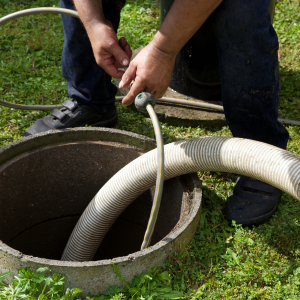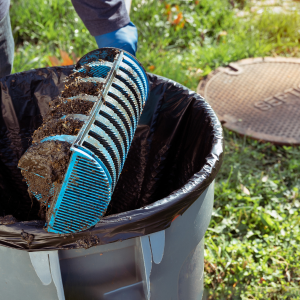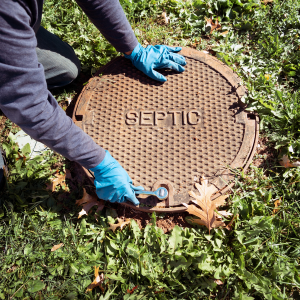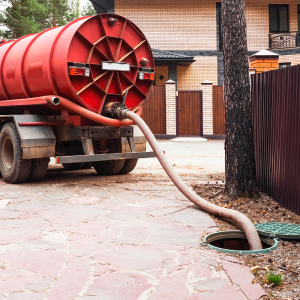
Evaluating Septic System Problems Before Selling
How to Identify the Severity of Septic Issues

To sell a house in Tennessee, you must ensure the septic system is in good shape. Sewage backups, bad smells, and slow draining are all common problems. These signs could mean your septic tank or waste field is seriously broken. A professional septic inspection can tell you if these issues need small fixes or a full overhaul. Finding problems early is important because they can change how much your property is worth and how appealing it is to buyers in the real estate market.
Why Accurate Diagnosis of Septic Problems is Crucial
By finding out about hidden problems before you put your house on the market, you can escape unexpected costs related to septic problems. A thorough inspection also ensures you follow Tennessee’s laws when buying or selling a home with a septic system. This lowers the chance of getting into trouble with the law later on. A professional diagnosis will also tell you how to fix these problems best, making the sale process go more smoothly.
What Experts Recommend for Initial Septic Inspections
Initial septic inspections are critical for understanding your system’s condition. Certified professionals thoroughly examine the septic tank, sewage lines, and drainage fields. Hiring local experts in Tennessee who know state regulations offers added confidence in meeting real estate transaction needs. This not only protects sellers but also builds trust with potential buyers.
Options for Addressing Septic System Issues
Should You Repair or Replace Your Septic System?

The choice between repairing or replacing your septic system depends on what the inspection reveals. Minor leaks might just need repairs, whereas severe problems like a failing leach field could require a full replacement. Consider the costs in Tennessee. While repairs are usually cheaper, replacements offer a long-term solution that might boost property value. Weigh these factors carefully to decide what’s best for your situation.
What Are the Costs Involved in Various Solutions?
Knowing the costs involved in fixing septic issues is key. In Tennessee, repair costs vary widely, from small pipe fixes to major tank replacements. There may be financing options to help manage these expenses. Knowing these costs can help you make smart choices when negotiating with potential buyers or planning improvements.
When is Selling As-Is a Viable Option?
Selling a house “as-is” could be a good option if fixing or replacing the septic system is too costly. This approach can speed up the sale, but it’s essential to disclose all known issues to comply with Tennessee laws. Transparency attracts buyers ready to accept the home’s current condition, potentially avoiding prolonged negotiations or price reductions due to hidden septic problems.
Legal Considerations for Tennessee Home Sales
Disclosure Laws for Septic Systems in Tennessee
In Tennessee, sellers must inform buyers about any known septic system issues as part of the disclosure laws. Being transparent can prevent future legal problems and build trust with buyers. Following these rules is both a legal requirement and a practical step when getting your property ready for sale.
Consultation Requirements with Real Estate Attorneys
Talking to a real estate attorney who knows Tennessee laws can be helpful when selling a property with a septic system. They provide legal advice on disclosure requirements and ensure you follow state regulations. Consulting an attorney can protect you from legal complications, making the sale process easier.
Required Certifications and Documentation for Sale
Before selling, you must get the necessary certifications and documentation proving your septic system meets Tennessee laws. This includes inspection reports and recent repair invoices, showing buyers that the system is in good shape. Keeping organized records makes for a smoother transaction and reassures buyers about the property’s compliance and value.
Impact of Septic Problems on Property Value
Septic issues can greatly reduce your property’s value and appeal. In real estate, especially in Tennessee, buyers often link these problems with expensive repairs and future risks. This perception can lead to lower buyer interest and require adjustments in pricing. Buyers might worry about a faulty septic system’s environmental and health risks, which could stop them from making an offer.
Due to many rural properties in Tennessee, septic tank concerns are frequent. Addressing these issues early can reduce their impact on house sales. If you’re selling a house with septic problems in Tennessee, knowing how these issues affect property value is key to setting realistic expectations.
Preparing Your Home for Market with Septic Issues
If you have problems with your septic system and want to sell your home, you should plan to get the best price and attract buyers. Before you put your house on the market, fix any problems and make sure your septic system works. This proactive move can ease buyers’ worries and boost their trust in your home.

Home decoration is important to distract buyers from problems with the septic system. Even if they are worried, point out the house’s positive aspects, like large rooms or a beautiful yard.
Using targeted marketing strategies is also crucial. Emphasize amenities, neighborhood parks, or recent improvements to redirect focus from septic problems. When selling a house with septic issues in Tennessee, stress the area’s lifestyle benefits and ensure your marketing materials show the property’s condition while highlighting its potential.
Consider working with experienced real estate professionals who effectively market homes with septic problems in Tennessee. They can help create a strong narrative about your property and suggest competitive pricing strategies to attract serious buyers.
By thoughtfully preparing your house for sale with septic issues in TN, you increase the chances of a successful sale that meets your financial and timeline goals.
Engaging with Potential Buyers Effectively
Selling a home with a septic system in Tennessee requires clear communication to address buyer concerns. Common questions include the septic tank’s condition, legal requirements, and any existing problems that could affect interest in the property. Trust can be built through transparency. Here are some tips:
- Share details about the septic system’s age, maintenance history, and recent inspections.
- Be honest about any known issues or needed repairs.
- Highlight any upgrades or improvements to the system.
Knowing the legal requirements for septic tanks when selling a Tennessee home is also important for complying with the law and managing buyer expectations.
How to Communicate Septic Issues Transparently
When buying or selling a home in Tennessee, being honest about septic problems is important. Sellers should follow all disclosure rules and say if they know of any problems with the septic system. Here’s the right way to do it:
- Know Legal Requirements: Familiarize yourself with Tennessee’s septic tank disclosure rules.
- Prepare Documentation: Collect inspection reports and repair records for potential buyers.
- Encourage Buyer Inspections: Suggest that buyers perform their inspections to verify the septic system’s condition.
- Negotiate Smartly: Be willing to negotiate the house price based on the septic system’s condition, possibly offering repairs or price adjustments.
What Buyers Need to Know About Septic Maintenance

Prospective buyers of homes with septic systems in Tennessee should understand key maintenance tips. Educating buyers builds transparency and confidence:
- Regular Pumping: Septic tanks usually need pumping every 3-5 years to prevent issues.
- Water Conservation: Advise buyers on using water efficiently to avoid stressing the system.
- Avoid Harsh Chemicals: Suggest limiting chemicals that can disrupt the septic tank’s bacterial balance.
- Recognizing Problems: Inform buyers of signs like slow drains or odors, which could indicate maintenance needs.
Sharing these tips helps manage buyer expectations regarding septic system responsibilities.
Addressing Buyer Questions Confidently
Buyers often have many questions about septic systems, especially in Tennessee. Being prepared can improve the sales process:
- Address Concerns: Talk proactively about the age and functionality of the septic system.
- Expert Advice: Use insights from Tennessee realtors experienced in septic tank issues.
- Inspection Guidance: Offer advice on what buyers should examine during septic inspections.
- Discuss Negotiation Tactics: Openly discuss potential price negotiations related to septic conditions, possibly adjusting the house price for necessary upgrades.
Financing and Negotiation Tactics
Understanding financing and negotiation strategies is key for sellers and buyers of properties with septic systems. Consider these options:
- Financing Options: Look into different financing avenues for purchasing homes with older or problem-prone septic systems.
- Price Negotiation: Prepare to negotiate the house price if septic issues are found during inspection.
- Cash Offers: Consider accepting cash offers to close the sale more quickly without traditional financing hurdles.
Working with knowledgeable Tennessee real estate professionals can help navigate septic tank policies for smoother transactions.
Exploring Financing Options for Buyers
For buyers interested in Tennessee properties with septic tanks, several financing options can help:
- Specialized Loans: Research loans that cater to homes with septic systems, including potential upgrade funds.
- Consult Specialists: Collaborate with Tennessee septic tank experts who understand financing nuances.
- Negotiate Price Reductions: Discuss price reductions to cover significant septic repair costs.
These options aid buyers in making informed choices and reducing financial stress from septic-related expenses.
What to Expect During Price Negotiations
Price negotiations for homes with septic tanks can be complex. Here’s what Tennessee sellers should know:
- Impact of Septic Issues: Understand how disclosed septic problems might lower the final sale price.
- Market Conditions: Assess how Tennessee’s real estate market affects your property’s value.
- Consider Reductions: Be open to price reductions based on the cost of essential septic repairs.
Being well-prepared and realistic can lead to better results during negotiations.
Offering Incentives for Quick Closures
Offering incentives can speed up the sale of Tennessee properties with septic tanks:
- Repair Credits: Provide credits toward septic repairs in the closing agreement.
- Initial Price Reduction: Set a competitive price to attract buyers quickly.
- Bonuses for Quick Closure: Offer bonuses for buyers ready to close by a certain date.
These strategies can prompt buyers to act fast, reducing time on the market.
Selecting Professionals for Real Estate Transactions
Choosing the right professionals for septic system-involved real estate transactions is important:
- Realtor Expertise: Choose realtors with experience handling septic issues to guide you through the sale.
- Legal Counsel: Consult attorneys who know Tennessee real estate laws and septic system rules.
- Septic Contractors: Hire trustworthy septic contractors for inspections and necessary repairs.
Engaging skilled professionals enhances compliance and smooths the transaction process.
How to Choose the Right Realtor for Septic-Affected Homes

Selecting the right realtor for Tennessee homes affected by septic issues is key:
- Experience Counts: Seek realtors with specific advice on managing septic tank issues.
- Strategic Approach: Choose agents using proven tactics to address buyer septic concerns.
- Clear Communication: Ensure the realtor can explain technical details clearly to potential buyers.
The right realtor significantly influences home-selling success.
Importance of Hiring Knowledgeable Inspectors
Knowledgeable inspectors are crucial for homes with septic systems in Tennessee:
- Thorough Inspections: Engage inspectors who thoroughly assess the septic system.
- Detailed Reports: Find inspectors providing detailed reports to inform sellers and buyers of necessary actions.
- Reliable Services: Trust reputable inspection services familiar with local rules.
Comprehensive inspections ensure transparency and prevent misunderstandings later in the sales process.
Role of Local Experts in Streamlining the Sale
Local experts, like septic contractors and real estate specialists, play a big role in streamlining sales involving septic systems:
- Expert Knowledge: Utilize their expertise for making informed decisions on septic upkeep and upgrades.
- Compliance Assistance: They help you meet local environmental standards.
- Problem Solving: These experts offer effective solutions, easing the entire transaction.
Getting local experts involved ensures professional handling of all sale aspects, leading to a smoother transaction.
Alternatives to Traditional Sales Methods
When selling a property, the typical approach of using a real estate professional might not suit everyone. Exploring other sales methods can offer more convenience or better financial results.
Cash Offers and iBuyers
Taking an offer in cash is a quick way to sell a house. This method can close faster and with less paperwork. Reliable Cash Buyers make deals easy and don’t cause problems with financing. iBuyers, on the other hand, use technology to make instant offers, which lets people sell their homes within days.
Auction Sales
Selling a home through an auction can create a competitive bidding environment, potentially leading to higher sale prices. Consider the risks, such as not meeting the reserve price. Benefits include a clear timeline and exposure to serious buyers.

FSBO (For Sale By Owner)
Choosing to sell a home FSBO gives homeowners full control over the sale process. This method can save costs on commission fees but requires effort in managing marketing and negotiation tasks.
Investor Sales
Selling to an investor can be beneficial for properties needing repairs. Investors often pay in cash and buy homes ‘as-is,’ removing the need for costly renovations.
Long-term Maintenance and Investment Considerations
Owning a home involves enjoying your space and thinking strategically about long-term investments and maintenance.
Septic System Maintenance

Maintaining a septic system prevents costly repairs and ensures environmental safety. Regular inspection and sustainable septic solutions extend the system’s life, offering peace of mind and a good return on investment.
Investing in Maintenance
Regular home maintenance helps preserve property value. Focus on roofing, plumbing, and electrical systems. Proper upkeep keeps your home a valuable asset over time.
Future-proofing Your Home
Upgrades that save energy and smart house technology can make a home better for its owners. These changes make the home more marketable and raise its possible selling value.
Using Technology in Real Estate Transactions
The real estate market has been transformed by technology, making buying and selling smoother and more efficient.
Virtual Tours
Virtual tours are now essential in real estate marketing, allowing potential buyers to explore properties remotely. This technology reaches a broader audience, useful for selling problematic properties.
Online Marketing and Digital Contracts
Professional photography, interesting listings, and social media outreach all form part of a good internet marketing plan. Digital contracts simplify transactions, therefore lowering the waiting times for better offers.
Environmental Impact and Community Considerations

To follow the rules and protect neighborhood resources, people who use septic systems need to know how they impact the environment. Septic systems help get rid of trash in places that don’t have central sewage, but they can hurt ecosystems if they aren’t used correctly. It is very important to keep your septic tank in good shape, because ignoring it can pollute the waterways.
When you sell a house in Tennessee, you have to follow environmental rules. This compliance not only helps protect the environment, but it also makes sure that the deal goes smoothly, since places that don’t follow the rules can turn away buyers. It’s important to know Tennessee’s specific rules about septic systems if you want to sell your house.
Understanding Local Market Trends
To succeed in the Tennessee real estate market, staying informed about market trends is key. Reviewing market reports helps gauge property values and decide the right time to sell. The housing market changes with economic factors, so understanding these trends can improve your sales strategy.
Consider how job growth or new businesses in the area might change real estate dynamics. By analyzing these factors, you can better predict shifts in property values and make smarter decisions about buying or selling property.
Encouraging Feedback and Continuous Improvement
In real estate, it’s important to get comments and make your strategies better. By listening to what buyers have to say, you can learn what future homeowners value, which can help you improve the way homes are valued. Using methods for continuous improvement lets you change how you do real estate, which increases the value of your property.
Ask questions like “What do buyers in our area value most?” or “How can we improve the sales experience?” These questions foster learning. Use this information to align your strategies with market expectations and boost client satisfaction, ultimately increasing your success with Reliable Cash Buyers.
Promote feedback sharing and keep open communication with clients to refine your approach and stay competitive in the ever-evolving real estate landscape.
FAQs:
What should I consider when selling a home with septic tank problems in Tennessee?
When selling a house with septic tank issues in Tennessee, it’s crucial to disclose these problems to potential buyers. Hire a professional for a septic inspection to evaluate the system’s condition. You might need to repair or replace the septic tank before listing the property. Be aware of local regulations and include necessary disclosures in your selling contract.
How can septic tank issues affect the sale of my house in Tennessee?
Septic tank problems can lower your home’s value and make it harder to sell. Buyers might worry about future repairs, which can slow down negotiations or cause sales to fail. Addressing these issues early with solutions like system upgrades or insurance claims information can ease buyer concerns.
Are there financing options available for homes with septic problems in Tennessee?
Yes, some lenders provide financing options for homes with septic issues. To boost buyer confidence, research and present these financing choices during the sale process. An escrow account can also be set up to manage repair costs if needed.
What steps should I take to prepare my house for sale with a septic problem in Tennessee?
Start by getting a professional septic inspection to assess the problem. Consider making necessary repairs or replacements. Working with a real estate professional who understands properties with septic tanks can be beneficial. Prepare for possible delays in closing due to septic issues and be ready to negotiate.
How can I find a reliable septic contractor in Tennessee?
Look for local septic specialists and check their reviews and certifications. Seek recommendations from your real estate professional or attorney. A trustworthy contractor can provide estimates for repairs or replacements, helping with sale negotiations and ensuring regulatory compliance.
What legal considerations should I be aware of when selling a home with a septic tank in Tennessee?
Make sure you comply with Tennessee’s disclosure laws regarding septic tank conditions. It’s wise to seek legal advice to deal with any disputes that may arise during the sale. Proper documentation and clear communication about septic issues can help avoid complications.
Can septic tank problems delay the sale of my home?
Yes, septic issues can lead to delays. Buyer inspections might uncover problems that require negotiation or repairs, affecting the sale timeline. Address these issues early and consider offering solutions, like covering repair costs, to keep the process moving smoothly.
What are some strategies for marketing a home with septic tank issues?
Emphasize positive aspects of the property, such as its location or recent improvements. Be upfront about septic issues and how they’ve been handled, like through recent repairs or replacements. Offering a home warranty that covers septic systems can also reassure potential buyers.
Key Insights
- Selling a home with septic tank problems in Tennessee needs careful planning and knowledge of real estate rules. We offer expert advice to help you through this process.
- Homes with septic tank issues can lose value. Consult Tennessee septic tank specialists to understand how these issues affect your home’s worth and explore repair options.
- Real estate deals involving homes with septic tank problems often require thorough inspections. Buyers in Tennessee usually expect transparency about any needed septic system repairs or upgrades.
- When selling a house with septic tank issues, hire a real estate professional who knows Tennessee’s legal requirements. This helps avoid potential delays in closing due to septic concerns.
- Look into septic tank financing options and insurance claims in Tennessee to cover repair costs before listing your property. We guide you in finding the necessary funds.
- Prepare your home for sale by addressing septic system upgrades or repairs, ensuring compliance with local Tennessee regulations, and avoiding legal issues.
- If you face septic tank backups, floods, or waste disposal problems, our team provides advice on plumbing solutions to make your home more appealing to buyers.
- We understand the challenges of pricing properties with septic tank issues. Our approach includes studying market trends and evaluating how these problems affect property value.
- Consider auctioning your property if it has severe septic tank issues that reduce its value. This can attract cash buyers ready to handle necessary repairs.
- Selling residential property with septic tank issues requires taking proactive steps, such as hiring a reputable septic contractor and conducting pre-sale inspections in Tennessee.
These findings apply across all of Tennessee, including areas in and around Knoxville, Athens, Maryville, McMinnville, Fairmount, and Winchester


